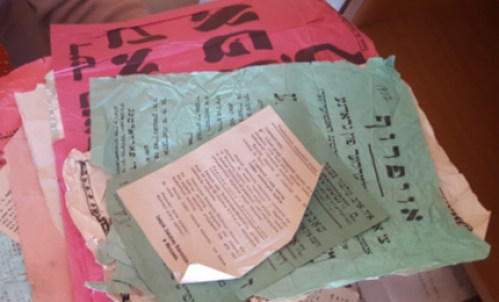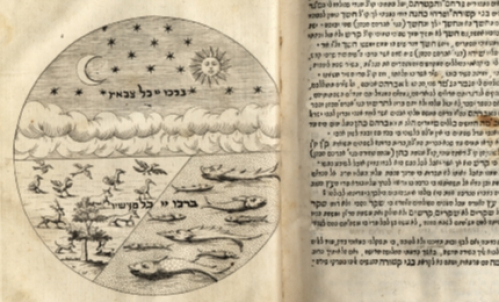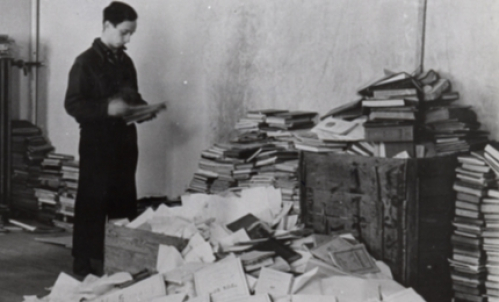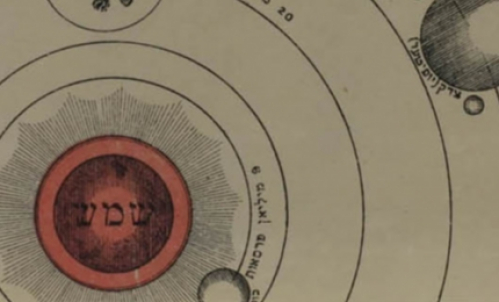“This is What Researchers Dream About Finding”: A Fragment About "The Dybbuk"
by ROBERTA NEWMAN
Among the 44,000 pages of digitized documents that YIVO received from the Lithuanian Central State Archives last September there was one that particularly caught Sarah Ponichtera’s eye.
“It literally gave me the chills,” she says. Ponichtera is the Project Manager for the Vilna Collections project and has been working on compiling a finding aid to archival documents that were part of YIVO’s collections before World War II, and which are now being digitized in Vilnius.
The document Ponichtera came upon is a surviving fragment of a review of a performance of S. An-ski’s “The Dybbuk” by Habimah, the Hebrew-language theater company founded in 1918 in Moscow. In 1926, Habimah left Russia to go on tour in Poland and elsewhere. (After the tour, Habimah split, with some members going to Palestine to establish Habimah as the national theater of Israel.)
The review, by Yiddish theater director and historian Michal Weichert, begins not with a detailed critique of Habimah’s performance of S. An-ski’s masterpiece (still today one of the best-known Yiddish plays ever written), but with a manifesto about the significance of language for the performing arts. It appears to be marked up for publication, possibly in Vilner Tog, the Yiddish daily edited by Zalmen Reisen from 1919 to 1939. (There is a note in the upper right-hand corner: “Friend Zalmen. Pay attention to the paragraph markers. They are marked like this: ].”)
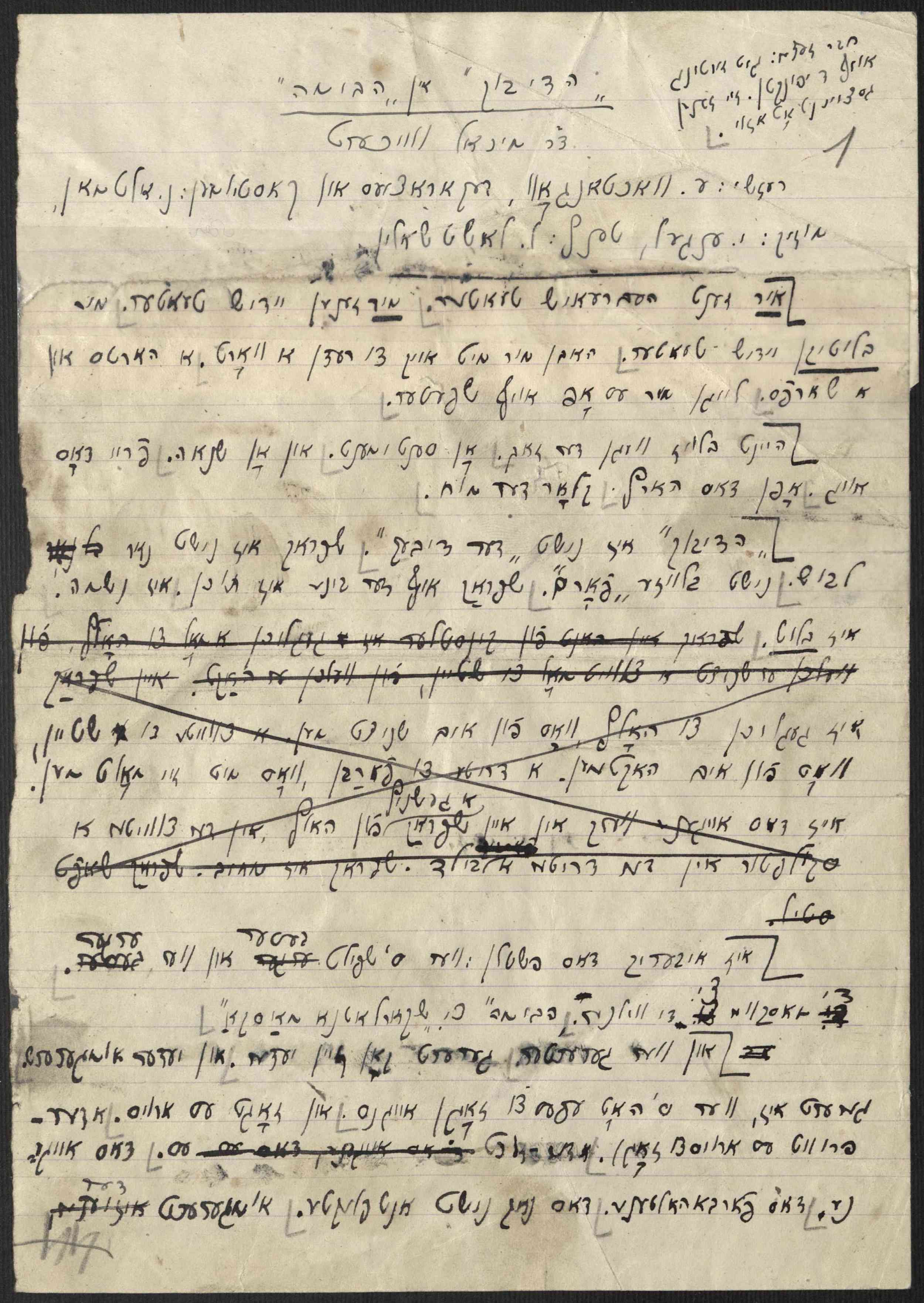
State Archives
“The Dybbuk at Habimah”
Dr. Michal Weichert
Director: E. Vakhtangov [Evgenii Vakhtangov, artistic director of Habimah and an important figure in the history of Russian theater]
Scenery and costumes: N. Altman [Natan Al’tman, noted Russian Jewish artist] Music: Y. Engel [Yo’el Engel, noted composer and ethnographer]
Choreography: L. Lashchilin [Lev Lashchilin, well-known dancer and choreographer for the Bolshoi Ballet]
You are Hebrew Theater. We are Yiddish theater. We bleed Yiddish theater. We have a few things to say to you, hard and sharp, but we will put it off until later.
Today, only about this particular matter. Without sentiment, without hatred. Wash out your eyes. Open your heart. Clear your head.
“Ha-Dybbuk” is not “Der dibek.” Language is not just exterior. Not just “form.” Language on the stage is content, is soul, is blood.
[Crossed out in manuscript] Language in the hand of the artist is sometimes likened to wood, which he carves, and sometimes to stone, which he chisels. One language may be compared to wood, which one carves; a second to stone that one chisels; and a third to colors with which one paints. The same work in one language is a wood-carving; and in a second, a sculpture; and in a third, a painting. Language is essential. Language generates style.
It is irrelevant to quibble about who performs better or worse; whoever it might be: the Moscow [State Yiddish Theater] or the Vilna [Troupe], or Habimah, or Szkarlatna Maska [the Scarlet Mask, a theater company in Warsaw that was the first to perform “The Dybbuk” in Polish].
Who is more correct? Everyone may be correct. And everyone mistaken. Correct is he who has something authentic to say and expresses it. Or tries to express it. Or seeks it. The authentic. The hidden. The yet to be revealed. Mistaken is….
“I find this document so fascinating,” Ponichtera explains, “because Weichert is writing at a time when all this was actually happening. He was writing for audiences who actually had the possibility and linguistic skills to compare the same play in four different languages: Yiddish, Hebrew, Russian, and Polish and who had passionate feelings about language.” The document also has particular resonance for Ponichtera because she is a Yiddish-English translator, the recipient of several translation fellowships and grants, including one from the National Endowment for the Arts. “This is a manifesto about what gets lost in translation.”
Alyssa Quint, YIVO’s 2016 Vilna Collections Scholar, notes, “This is what researchers dream of finding: a document by a prominent historical figure that reveals momentous thoughts and even his thought process being worked out on the page.” Weichert (1890–1967) directed plays for leading Yiddish dramatic companies, including the Vilna Troupe. “Certain details allow us to date this document as probably having been written in 1926 or thereabouts. Later on, Weichert organized acting schools in Warsaw and he and his students founded one of the most prominent Yiddish theater companies of the interwar years, Yung-teater, ‘Young Theater’.”During her one-year appointment, Quint, a historian of Yiddish theater and literature, will be focusing on one particular Vilna collection, the Esther-Rachel Kaminska Yiddish Theater Museum, and will brainstorm with YIVO staff to come up with innovative ways of presenting the Vilna Collections to the public and on the Internet.
The manuscript digitized in Vilnius will be reunited with dozens of other materials related to “The Dybbuk” in the Vilna Collections. Among the materials in the Esther-Rachel Kaminska Yiddish Theater Museum is this photograph of a Yiddish-language production of “The Dybbuk.”
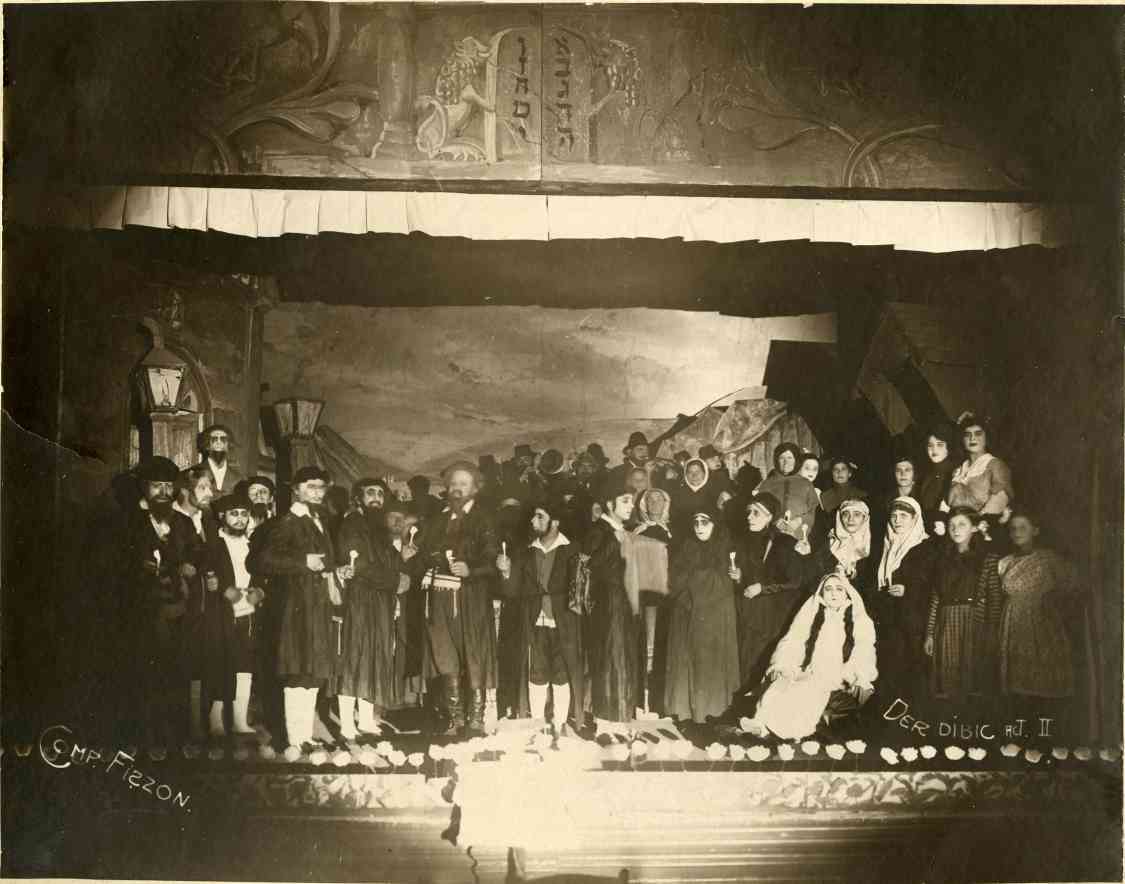
“This has its own extraordinary story,” Quint points out. “It was directed according to the conceptualization of the legendary Polish-Yiddish director Dovid Herman, under the supervision of Misha Fishzon. Fishzon joined a traveling Yiddish theater troupe as a teenager, but then settled down in Poltava. There he worked as a wig-maker and became a celebrated make-up artist. He later returned to acting and directing Yiddish theater and by 1921 was appointed by the new Soviet government general-director of all the Yiddish theaters in Ukraine.”
Not long after this appointment, Fishzon decided to leave Russia. This production of “The Dybbuk” played to great fanfare in Bucharest and in a number of cities throughout Romania, attracting the attention of every segment of Romanian society. “Private viewings were commissioned for special audiences,” Quint notes, “including one for the director of the National Theater of Bucharest, Victor Eftimiu, his actors, and for Romania's royal family.”
Roberta Newman is YIVO’s Director of Digital Initiatives.
